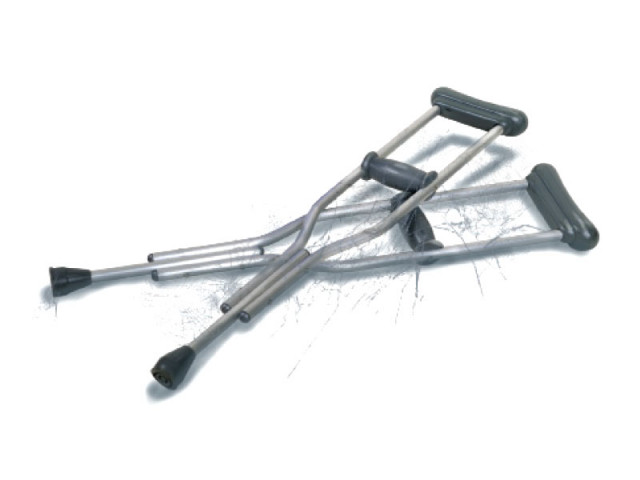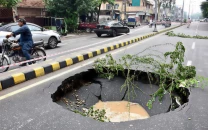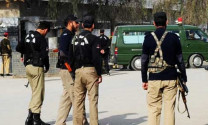Crippling disease: After two years, polio re-surfaces in Pindi
Boy recently moved to Bajaur from garrison city; health officials offer conflicting explanation for source of virus.

The polio threat just got a whole lot closer to home.
A new case of polio emerged in Rawalpindi on Tuesday after the National Institute of Health (NIH) confirmed that a three-year-old boy was infected with the virus. The total number of polio cases in the country rose to 31 this year.
This is the first case of polio reported from Rawalpindi in more than two years. The last case was reported on June 24, 2010. However, the World Health Organisation (WHO) had issued an alert last month, when they found traces of the virus in Rawalpindi’s sewage water.
According to NIH officials, the crippling P1 type virus was detected in Sanaullah, a three-year-old boy from Mandi Mor, who began suffering the onset of paralysis on August 17.
His mother claims that the child was given at least three doses of the polio vaccine, said the NIH official, who requested anonymity as he was not authorised to talk to the media. The child’s parents claimed that he received three oral polio vaccine (OPV) doses in Rawalpindi and another from a transit vaccination team while he was travelling from Peshawar to Bajaur Agency on August 28.
Sanaullah was born in Rawalpindi and lived there till August 15, 2012, when he moved to Bajaur Agency. On August 16, he was running a high fever and was taken to a local informal healthcare provider.
“He had already developed the initial symptoms of poliomyelitis by the time he got [to Bajaur]. The symptoms take eight to 10 days to appear, which would suggest the child contracted the virus in Rawalpindi,” the NIH official said.
Denial from Pindi DHO
Rawalpindi District Health Officer Dr Khalid Randhawa, however, insisted that the new polio case is not from Rawalpindi and is from Bajaur Agency.
“We have talked to close relatives of the child in Rawalpindi and they said the family moved from here before or during Ramazan this year. Therefore the case is from there,” he said. Randhawa conceded, however, that he had not yet talked to the boy’s father.
WHO Chief Coordinator for Polio Eradication in Pakistan, Dr Elias Durry, rejected the impression that the programme was failing to curb the virus’s spread, saying, “[Rawalpindi] is a known high-risk area where the immunity level of the community is low due to heavy population movement.”
Published in The Express Tribune, September 12th, 2012.



















COMMENTS
Comments are moderated and generally will be posted if they are on-topic and not abusive.
For more information, please see our Comments FAQ